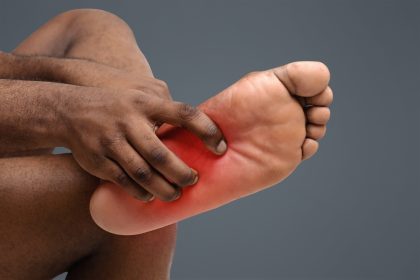Drugs and weight loss often go hand in hand, but the journey can feel overwhelming—especially when your wallet takes a hit. With viral weight loss medications trending all over social media, it’s tempting to look for deals online. But before you click that “buy now” button on Facebook Marketplace, there’s some serious tea you need to know about.
The viral weight loss drugs everyone’s talking about
Let’s spill the facts: medications like semaglutide (sold as Ozempic and Wegovy) and tirzepatide (known as Zepbound and Mounjaro) have totally transformed the weight loss game. These injectables have taken over TikTok and Instagram, with countless before-and-after transformations making waves. But here’s the catch – these miracle-seeming medications come with a jaw-dropping price tag of over $1,000 per month without insurance.
Why people are turning to social media for weight loss drugs
The math isn’t pretty. When you’re facing four-figure monthly costs for prescribed medications, those “amazing deals” popping up in your Facebook feed start looking mighty tempting. Social media marketplaces are flooded with sellers promising the same medications at fraction of the cost. But this seemingly budget-friendly shortcut could cost you way more than money in the long run.
The sketchy truth about black market weight loss medications
Here’s where things get scary. When you buy weight loss medications through social media or unauthorized websites, you’re basically playing Russian roulette with your health. These medications could be:
- Completely fake products with zero active ingredients
- Dangerous counterfeit drugs containing harmful substances
- Expired medications that lost their effectiveness
- Real products that were stored improperly
- Contaminated substances that could make you seriously ill
The refrigeration situation you need to know about
Plot twist: These trendy weight loss medications aren’t like your regular pills. Many require specific storage conditions, including refrigeration, to stay safe and effective. When you buy through unofficial channels, there’s zero guarantee these drugs were stored properly. That sketchy seller might have left your medication baking in a hot warehouse for weeks before shipping it to you.
The legal drama you could face
If health risks weren’t scary enough, buying prescription medications without a proper prescription isn’t just dangerous – it’s illegal. Here’s the tea on potential consequences:
- Buyers could face misdemeanor charges
- Fines that’ll make your wallet cry
- Possible jail time (yes, really!)
- A criminal record that could haunt your future
- Legal troubles that could affect your job prospects
The legit ways to save money on weight loss medications
Before you risk it all for a social media deal, there are actually some non-sketchy ways to make these medications more affordable:
- Check out manufacturer savings programs
- Talk to your insurance company about coverage options
- Look into patient assistance programs
- Ask about lower-cost medication alternatives
- Compare prices at different pharmacies
- Consider mail-order pharmacy options
The breakthrough in making medications more accessible
Some good news just dropped: Big pharma is finally reading the room. Eli Lilly recently announced a game-changing move by offering single-use vials of Zepbound for $399. While that’s still not pocket change, it’s a major improvement from the previous pricing that had everyone’s bank accounts shaking.
The bottom line on buying weight loss drugs
Let’s keep it 100: The journey to weight loss can feel overwhelming, especially when money’s tight. But risking your health (and freedom) for a sketchy deal isn’t the move. Instead of sliding into a random Facebook seller’s DMs, here’s what you should do:
- Schedule a consultation with a healthcare provider
- Discuss your budget concerns openly
- Ask about all available medication options
- Explore legitimate savings programs
- Consider whether medication is right for your situation
The weight loss industry is a multi-billion dollar market, and while it’s full of valuable resources, it’s also rife with people who want to cash in on your health goals. Unfortunately, some of these individuals and companies prioritize profits over safety, promoting quick fixes and unverified products that can do more harm than good. But your well-being deserves more than any tempting social media “deal” could ever provide.
When you commit to legitimate sources, such as licensed pharmacies or reputable wellness providers, and partner with healthcare professionals, you’re making an investment in something priceless: your health and safety. Professionals can help tailor a weight loss plan that respects your body’s unique needs, prioritizes safe practices, and steers you clear of potential health risks. In the end, true wellness is about more than just the scale—it’s about building a sustainable lifestyle that supports your long-term health and happiness.
Remember, those viral before-and-after transformations you’re seeing online didn’t happen overnight, and they definitely didn’t happen through sketchy online purchases. The most sustainable path to weight loss is the one that keeps you safe, healthy, and on the right side of the law.
Pro tip: If you’re feeling tempted by those too-good-to-be-true deals, screenshot the price of your legal prescription and multiply it by 12. That yearly total might seem high, but it’s nothing compared to the potential costs of medical bills, legal fees, and health complications from unregulated medications.
Stay safe, stay smart, and keep it legitimate in your weight loss journey. Your future self will thank you.











